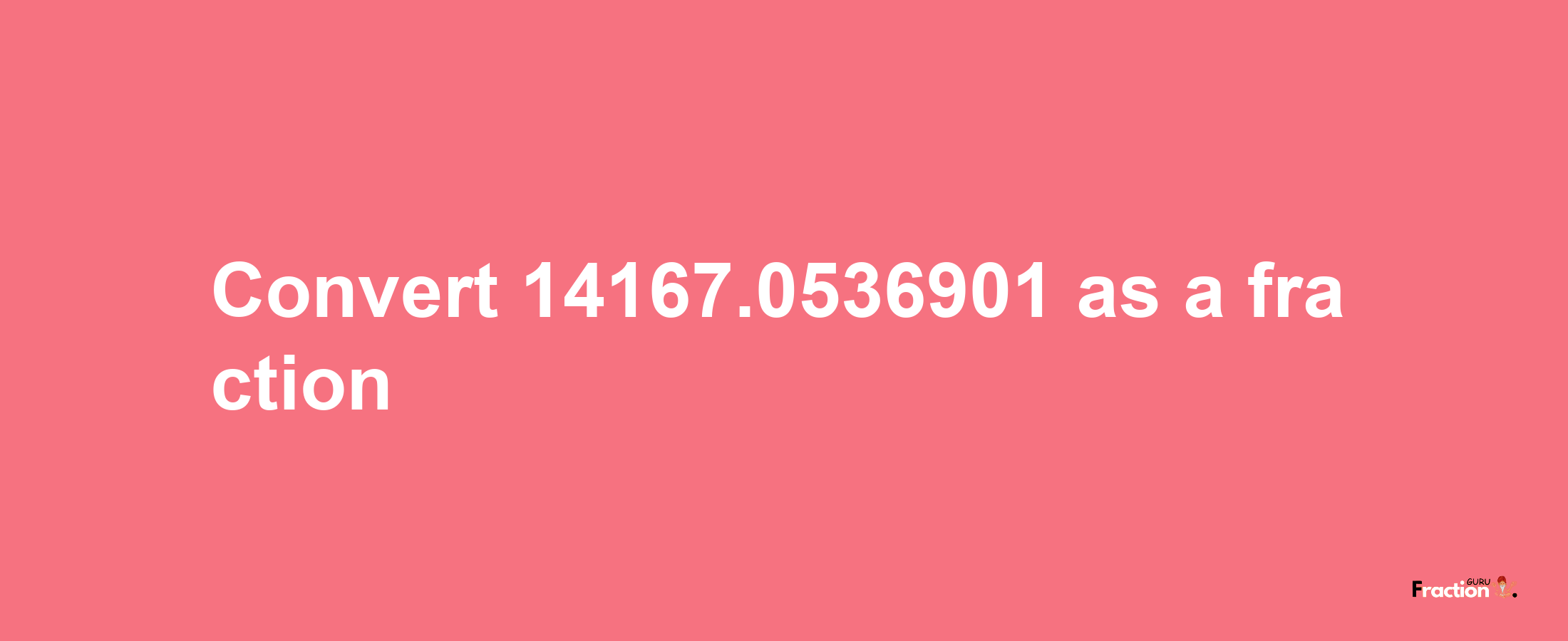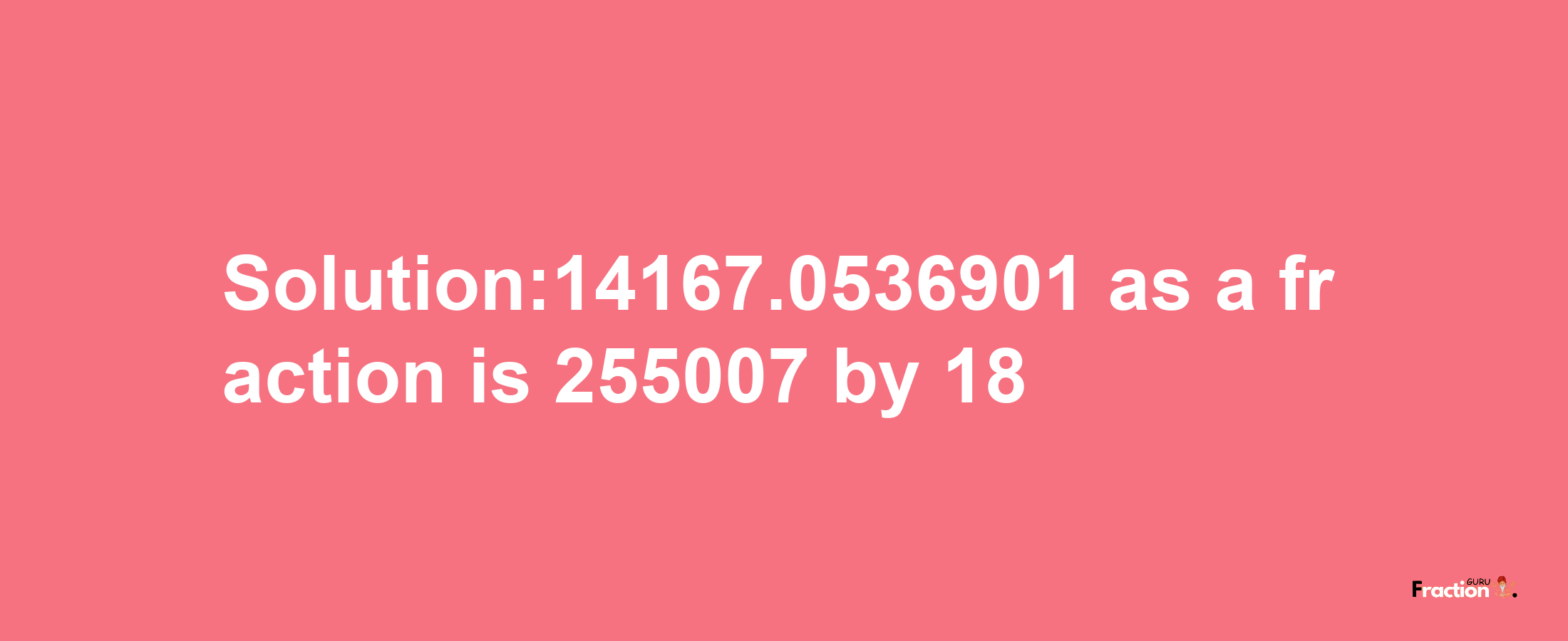Step 1:
The first step to converting 14167.0536901 to a fraction is to re-write 14167.0536901 in the form p/q where p and q are both positive integers. To start with, 14167.0536901 can be written as simply 14167.0536901/1 to technically be written as a fraction.
Step 2:
Next, we will count the number of fractional digits after the decimal point in 14167.0536901, which in this case is 7. For however many digits after the decimal point there are, we will multiply the numerator and denominator of 14167.0536901/1 each by 10 to the power of that many digits. So, in this case, we will multiply the numerator and denominator of 14167.0536901/1 each by 10000000:
Step 3:
Now the last step is to simplify the fraction (if possible) by finding similar factors and cancelling them out, which leads to the following answer for 14167.0536901 as a fraction:
255007/18 / 1


